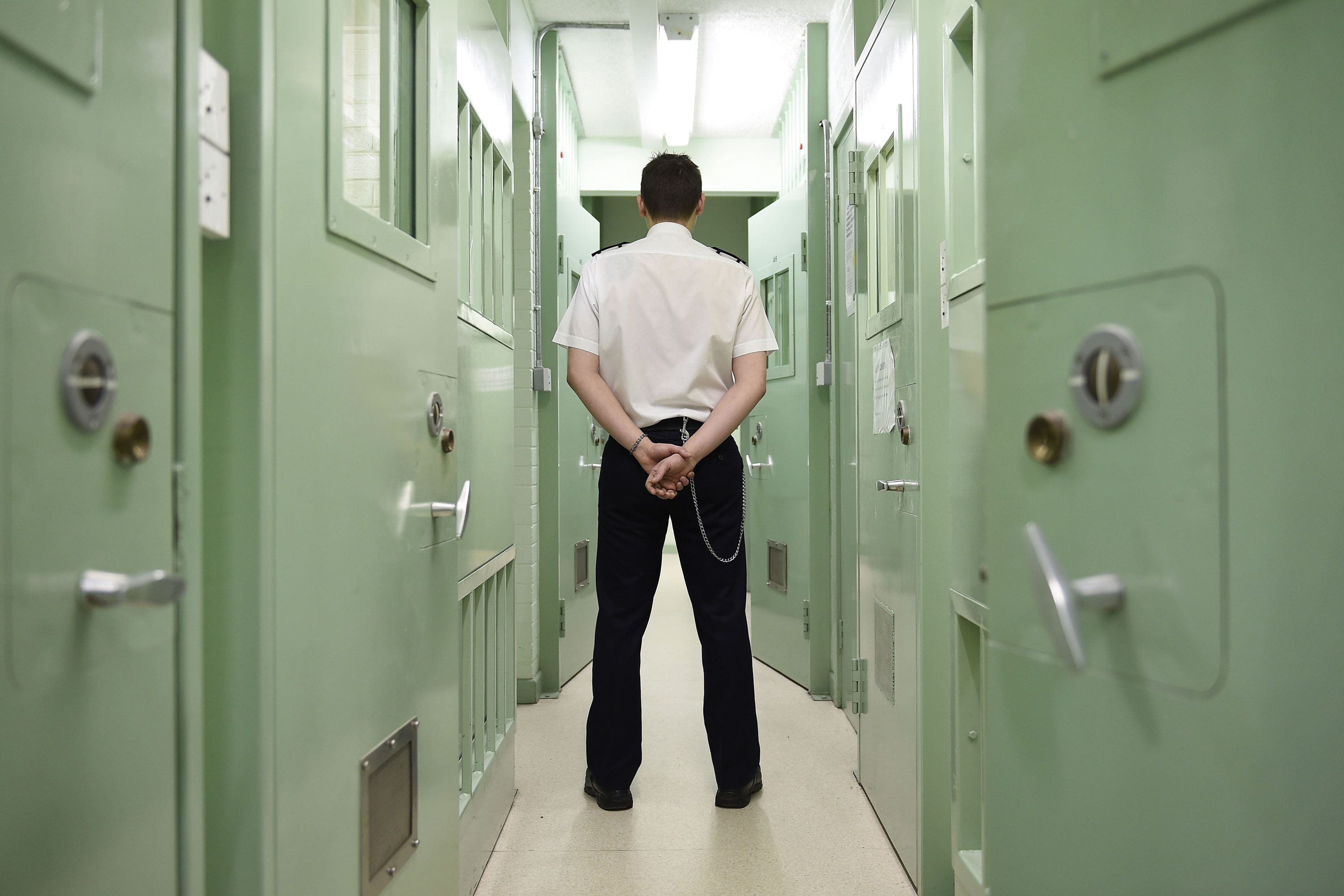Prisons ‘creaking’ under pressure amid plans to release offenders 70 days early
Chief inspector of prisons Charlie Taylor said the number of jail places cannot keep pace with the number of offenders sentenced to custody.

Your support helps us to tell the story
From reproductive rights to climate change to Big Tech, The Independent is on the ground when the story is developing. Whether it's investigating the financials of Elon Musk's pro-Trump PAC or producing our latest documentary, 'The A Word', which shines a light on the American women fighting for reproductive rights, we know how important it is to parse out the facts from the messaging.
At such a critical moment in US history, we need reporters on the ground. Your donation allows us to keep sending journalists to speak to both sides of the story.
The Independent is trusted by Americans across the entire political spectrum. And unlike many other quality news outlets, we choose not to lock Americans out of our reporting and analysis with paywalls. We believe quality journalism should be available to everyone, paid for by those who can afford it.
Your support makes all the difference.The prison system is “creaking at every level”, a watchdog warned as ministers prepared to release some offenders from their sentences up to 70 days early to ease overcrowding.
The early release scheme will be extended from 35 days to 70 days from May 23, according to an email to prison and probation staff obtained by The Times.
The email setting out the extension of the release scheme said that despite measures introduced less than two months ago to free up space, prisons face “significant challenges” and “pressures continue in the male estate” in England and Wales, according to the newspaper.
What we're seeing at the moment is an estate that is creaking at every level under enormous pressure from the sheer churn and numbers of people within the system
Chief inspector of prisons Charlie Taylor said “there simply isn’t enough space” despite “frantic” attempts to increase capacity with temporary accommodation and two new jails.
“The number of places simply can’t keep pace with the number of people coming in,” he told Times Radio.
“What we’re seeing at the moment is an estate that is creaking at every level under enormous pressure from the sheer churn and numbers of people within the system.”
He said prisoners needed support “to begin to be rehabilitated” but “if they are simply left languishing in a cell, exposed to all kinds of drugs, further criminality, then the danger is actually they come out worse than they went in”.
That would result in “more victims of crime, more violence, more communities in mayhem”.
Mr Taylor said 24,000 more places were required by 2028 “and that just simply isn’t realistic in terms of building”.
“So ultimately there needs to be a conversation about who we lock up, what we want people to do when they are locked up and how long we lock people up for.”
Justice Secretary Alex Chalk announced in October that the Government would use the powers it has to allow the Prison Service to let some prisoners out of jail up to 18 days early to ease overcrowding.
In March, he extended the so-called end of custody supervised licence scheme “to around 35-60 days”, as Ministry of Justice (MoJ) statistics showed that prisons in England and Wales were still nearing capacity.
The Government insisted the measure would be temporary and only apply to “low-level offenders”.
Ministers reportedly quietly authorised the latest change without any formal announcement.
During an urgent question in the Commons, Labour’s shadow justice secretary Shabana Mahmood said the Government was making the changes “in secret”.
She said: “This is the price that the public is paying for a justice system in crisis and a Government in freefall.”
She added: “The Government is releasing prisoners, but not the facts. The strategy is clear for all to see, say nothing, try and get away with it and get to the other side of the general election. It’s shameless, and frankly a disgrace.”
Justice minister Edward Argar replied: “I think (Ms Mahmood) suggesting ‘sneaking it out’, in October and March, which included statements to this House was entirely transparent.”
Mr Chalk was previously criticised for making the March announcement via a written ministerial statement to Parliament after 8pm, before attending the Commons in person the following day to update MPs.
The MoJ insisted that offenders freed early were under strict supervision.
A MoJ spokesperson said: “We will always ensure there is enough capacity to keep dangerous offenders behind bars.
“We are carrying out the biggest prison expansion programme in a hundred years, opening up 20,000 modern places, and ramping up work to remove foreign national offenders.
“To ease the short-term pressures on prisons, in March we announced an increase in the number of days governors could, under existing powers, move some offenders at the end of their prison term on to licence.
“These offenders will continue to be supervised under strict conditions such as tagging and curfews.”